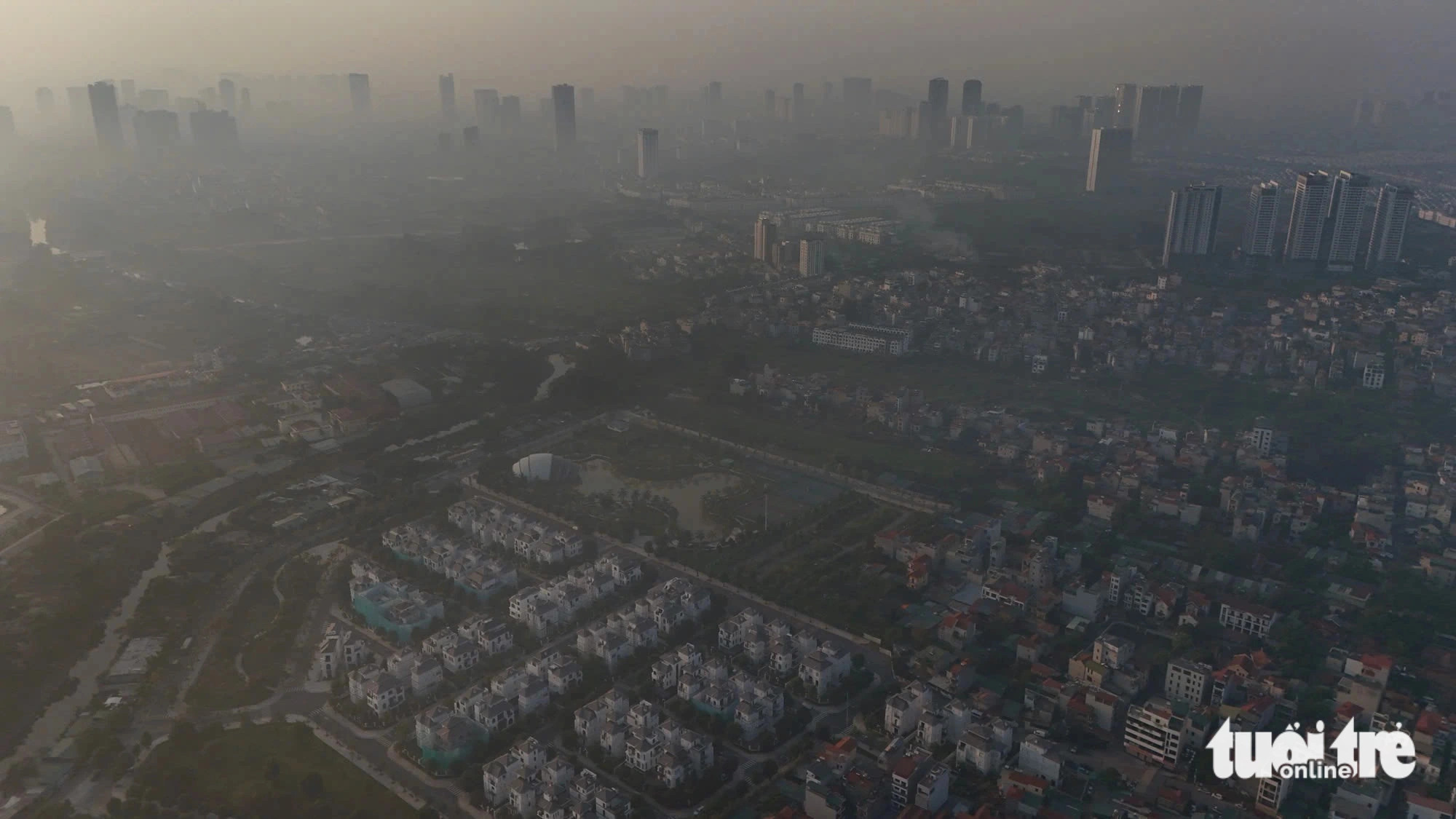Transportation, industrial activities, and construction dust are among the primary sources of air pollution in Hanoi, according to an official from the Ministry of Natural Resources and Environment.
Last weekend, the Vietnamese capital and many northern provinces like Phu Tho, Bac Giang, Hai Duong, Ha Nam, and Thai Nguyen experienced harmful red and even purple air quality alert levels, both of which are significantly detrimental to public health.
Speaking to Tuoi Tre (Youth) newspaper on the issue, Nguyen Hoang Anh, deputy head of the environmental quality management division at the ministry’s Pollution Control Department, said Hanoi's air pollution primarily stems from transportation, industrial, and construction activities.
She explained that emissions from vehicles are the main cause, with large numbers of fossil-fuel-powered vehicles on the roads.
Hanoi has around 1.1 million cars and nearly seven million motorbikes, many of which are aging and do not meet emission standards.
Moreover, residential and public infrastructure projects, including road and sidewalk repairs and upgrades, often lack adequate dust-control measures like site shielding, vehicle washing, and regular cleaning, contributing significantly to air pollution.
She went on to say that factories and manufacturing facilities using coal, oil, and other fossil fuels produce high levels of pollutants.
|
|
| Emissions from fossil-fuel-powered vehicles are a primary cause of air pollution in Hanoi. Photo: Danh Khang / Tuoi Tre |
The common practice of burning waste, wood, and straw, especially in suburban Hanoi, has exacerbated air quality.
Despite the capital city's restrictions on coal stoves, many residents continue to use them, unknowingly contributing to the pollution.
She added that weather and climate conditions are contributing factors, particularly in northern provinces and cities.
The Pollution Control Department underscored the need for immediate and sustainable measures to reduce transportation-related emissions.
The department sugegsted that Vietnam should develop and adopt green transportation technology, encouraging electric and biofuel-powered vehicles.
It is essential to develop a comprehensive network of electric vehicle charging stations to facilitate the shift toward electric transportation.
More initiatives are needed to raise public awareness about the impact of transportation emissions, promote eco-friendly vehicle options, and encourage public engagement in environmental protection efforts.
Future improvement measures may include building integrated urban areas that combine residential, work, and recreational spaces to minimize travel distances and reduce emissions.
Investment in R&D for air filtration technologies and implementing modern technology within the public transport network could further enhance environmental quality.
The official also insisted on close collaboration among ministries, agencies, and departments to effectively tackle traffic-related pollution.
Like us on Facebook or follow us on X to get the latest news about Vietnam!





















































